Review: The Show Must from the Leeds University Union Theatre Group
November 9, 2015
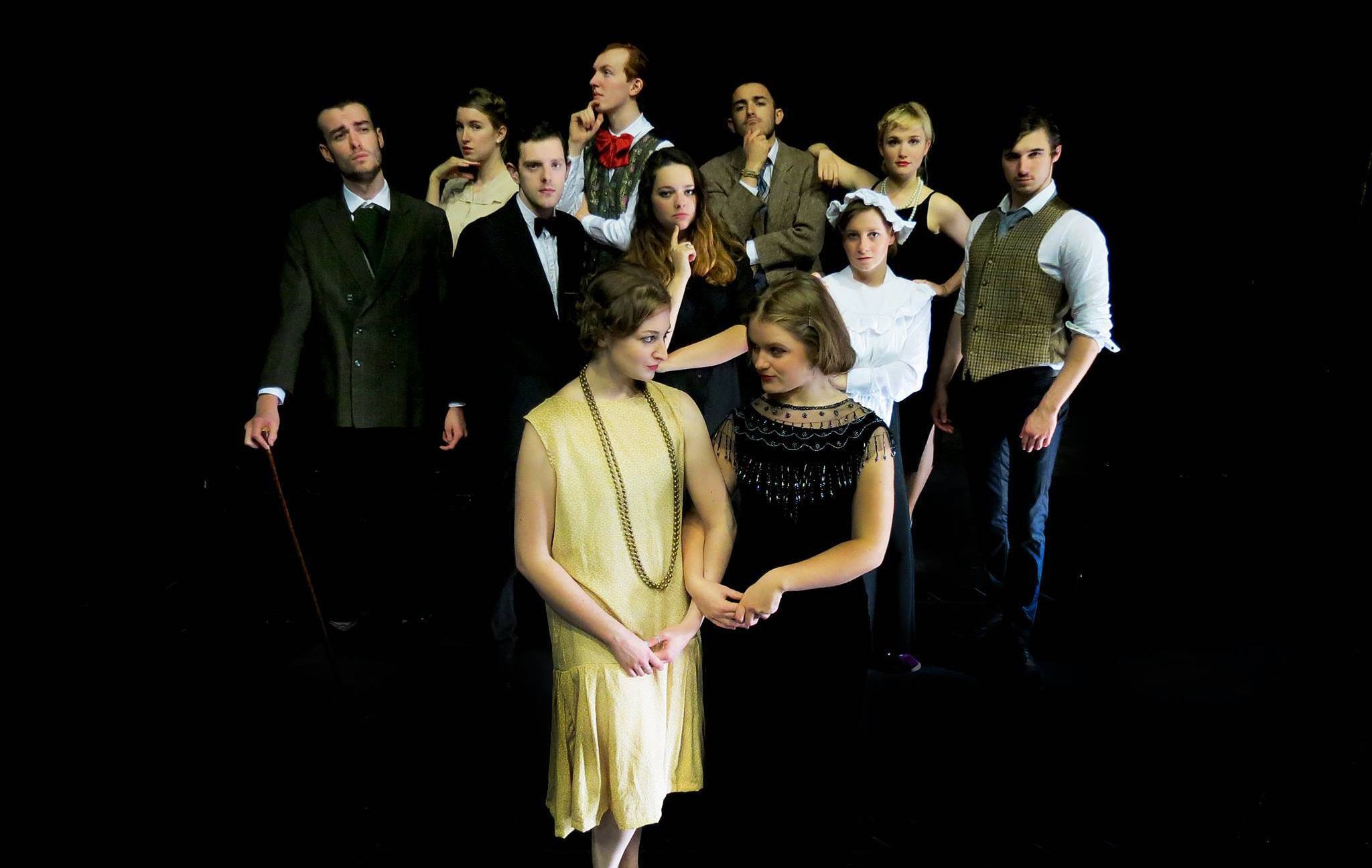
If you are in anyway involved with the Leeds University Union’s Theatre Group (TG for those of you in the know) you have probably heard of the writing/ directing/ theatre-making duo Josh Ling and Robin Leitch. The recent Theatre and Performance graduates have been creating theatre–both independently and together–for a few years now, but this most recent production is clearly the culmination of all their hard work.
The humour is refined, the farce reaching just the right levels of ridiculous, and the characters well-developed enough to allow for audience identification and relatability, something which I personally have found to be somewhat lacking in their previous work. On the one hand, this is to be expected. Farcical comedies do often tend to be plot (as opposed to character) -driven, but I am a firm believer in at least some level of audience-character rapport. And I wasn’t disappointed!
The show flips theatrical convention on its head, thoroughly engaging with the meta-theatrical, typically Shakespearean ‘play-within-a-play’ device. I was initially unsure as to how this would be realised in performance, given the potential for excessive confusion and subsequent disinterest in the plot. However, I was proven wrong, both by Ling and Leitch’s nuanced writing style and the high quality of acting the cast exhibited, which worked well with the brilliant set, designed by Roz Chomacki.
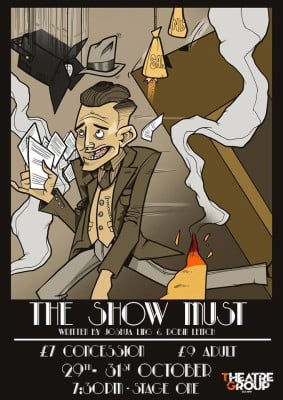
As well as being thoroughly entertaining, the backstage/ onstage plots were worlds apart from each other in a way that meant that every time an actor entered or exited the stage their entire persona changed. One of the most obviously hilarious examples of this was Becky Downing’s on-stage performance as Felicity Didcott, contrasting with her off-stage performance as Lizzie Quinn-Mackey. With her bum in the air and on all-fours, her struggle to push a suitcase across the stage–which she then practically threw about upon going ‘backstage’–was potentially one of my favourite parts of the show. Her ability to switch so rapidly from the marvellously farcical world of the Turnbridge-Hagg household to the naturalistic world of the backstage was very well executed, her strengths arguably situated in the realm of the comedic.
Similarly, Georgina Wormald and Tom Claxton portrayed Lily Turnbridge-Hagg and Edward Bexley’s sickeningly sweet romance perfectly, a performance which was only accentuated by its sheer contrast to the relationship between the actors (Lydia Branson and Tom Matthews) they were playing. In less complex terms, both Wormald and Claxton were excellent in the way they were able to play uncontrollable love and unbearable irritation almost simultaneously.
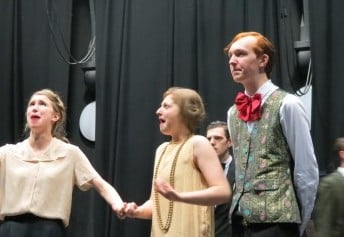
Handing out programmes with the false names of the play-within-a-play’s actors was an ingenious way of placing the audience in the realm of the ‘onstage’, in turn creating this exciting feeling that we were in a way spying on the backstage world. The nature of the plot supported this, revolving around stories of gossip and sabotage between the image-obsessed and reputation-conscious actors.
Whilst on the whole the balance between the two plots was relatively equal, there were times where I felt like Ling and Leitch had gotten a little carried away with one and neglected the other, putting too much focus on one of the plots at a time and forgetting that the other was just as interesting to the audience. This could also be extended to the tricky balance between farce and satire: whilst a scene involving brooms, piggybacks, and Nick Dawkins elicited many-a-laugh from the audience, I felt like the real humour lay in the nuanced writing and the witty one-liners that, for me anyway, characterised the brilliance of the piece.
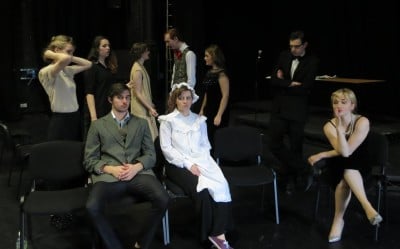
Right up until the very ending it seems as if the ‘fourth wall’ has been entirely removed. We are given false flyers, shown headshots and (hilarious) bios of the actors we have got to know in the backstage world, and given an insight into the falsity of the stage and the many doors leading to ‘the garden’ or ‘the bedroom’.
However, what really elevated the show from being a funny and enjoyable, albeit simple, play-within-a-play was the ending, which served to mess with all notions of performance and reality. The inclusion of the final line insinuated that the offstage actors playing onstage actors were actually actors themselves: that there was a play-within-a-play-within-another-play, adding an entirely new dimension to our position as audience members.
We were led to believe that we were given an insight into the backstage world of a play, when perhaps the backstage world was actually just another onstage. In a way, of course it was. We knew that the actors were indeed actors playing two parts, but what we didn’t know was the possibility of these parts being inauthentic. Did they purposefully step out of character for the final lines? Was our clap a clap towards the actors offstage, or the actors playing these actors? Were there two ‘fourth walls’ operating at one time, and if so, how do we know that it stopped there?! Even as I am writing this I am not wholly sure that I am able to come to a conclusion, which I think is exactly the effect Ling and Leitch wanted, and for achieving that most marvellously they must be congratulated.
Filed under: Theatre & Dance
Tagged with: acting, falsity, farce, leeds, metatheatrical, performance, reality, satire, Theatre Group, university
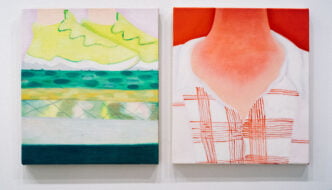
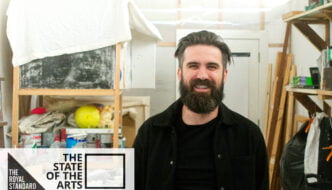
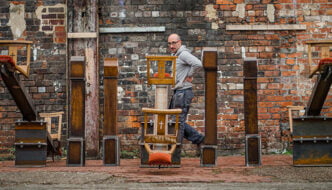
Comments